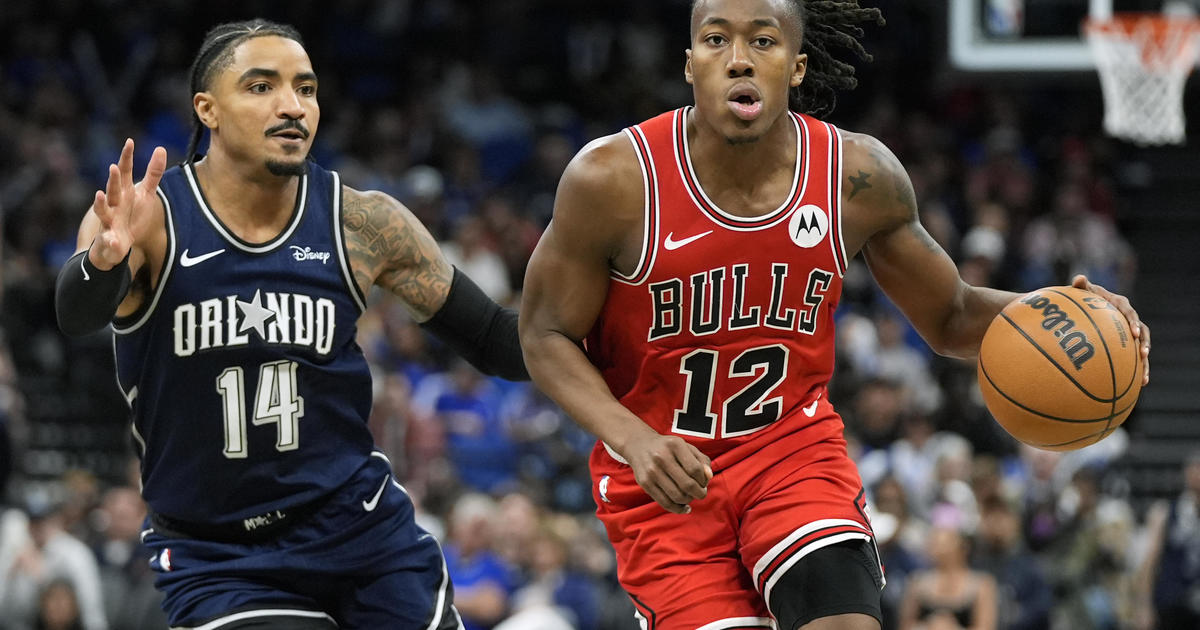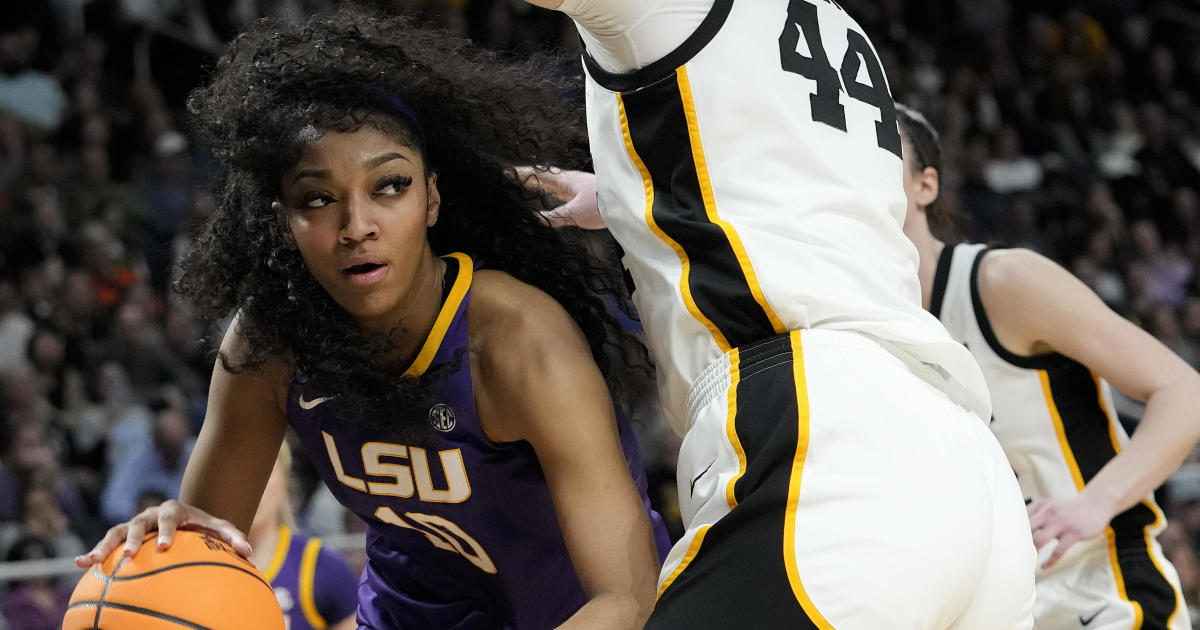READ: Penn State's Penalties Outlined
(CBS) The NCAA handed out unprecedented sanctions against Penn State Monday morning. Here are the penalties as outlined by the NCAA in their own words:
$60 million fine. The NCAA imposes a $60 million fine, equivalent to the approximate average of one year's gross revenues from the Penn State football program, to be paid over a five-year period beginning in 2012 into an endowment for programs preventing child sexual abuse and/or assisting the victims of child sexual abuse. The minimum annual payment will be $12 million until the $60 million is paid. The proceeds of this fine may not be used to fund programs at the University. No current sponsored athletic team may be reduced or eliminated in order to fund this fine.
Four-year postseason ban. The NCAA imposes a four-year postseason ban on participation in postseason play in the sport of football, beginning with the 2012-2013 academic year and expiring at the conclusion of the 2015-2016 academic year. Therefore, the University's football team shall end its 2012 season and each season through 2015 with the playing if its last regularly scheduled, in-season contest and shall not be eligible to participate in any postseason competition, including a conference championship, any bowl game, or any postseason playoff competition.
Four-year reduction of grants-in-aid. For a period of four years commencing with the 2013-2014 academic year and expiring at the conclusion of the 2016-2017 academic year, the NCAA imposes a limit of 15 initial grants-in-aid (from a maximum of 25 allowed) and for a period of four years commencing with the 2014-2015 academic year and expiring at the conclusion of the 2017-2018 academic year a limit of 65 total grants-in-aid (from a maximum of 85 allowed) for football during each of those specified years. In the event the total number of grants-in-aid drops below 65, the University may award grants-in-aid to non-scholarship student-athletes who have been members of the football program as allowed under Bylaw 15.5.6.3.6.
Five years of probation. The NCAA imposes this period of probation, which will include the appointment of an on-campus, independent Integrity Monitor and periodic reporting as detailed in the Corrective Component of this Consent Decree. Failure to comply with the Consent Decree during this probationary period may result in additional, more severe sanctions.
Vacation of wins since 1998. The NCAA vacates all wins of the Penn State football team from 1998 to 2011. The career record of Coach "Joe" Paterno will reflect the vacated records.
Waiver of transfer rules and grant-in-aid retention. Any entering or returning football student-athlete will be allowed to immediately transfer and will be eligible to immediately compete at the transfer institution, provided he is otherwise eligible. Any football student-athlete who wants to remain at the University may retain his athletic grant-in-aid, as long as he meets and maintains applicable academic requirements, regardless of whether he competes on the football team.
Individual penalties to be determined. The NCAA reserves the right to initiate a formal investigatory and disciplinary process and impose sanctions on individuals after the conclusion of any criminal proceedings related to any individual involved.
Corrective
Adoption of all recommendations presented in Chapter 10 of the Freeh Report. The NCAA requires the university to adopt all recommendations for reform delineated in Chapter 10 of the Freeh Report. The university shall take all Reasonable steps to implement the recommendations in spirit and substance by December 31, 2013.
Implementation of Athletics Integrity Agreement. The Freeh Report includes a number of recommendations related to the University's athletics department. Specifically, in Chapter 10, Section 5.0, the report addresses the integration of the athletics department into the greater university community. Within 10 days of this consent decree, the university will be required to enter into an "Athletics Integrity Agreement" (AIA) with the NCAA and the Big Ten Conference, which obligates the University to adopt all of the recommendations in Section 5.0 of the Free Report as described in the above paragraph and, at a minimum, the following additional actions:
- Compliance Officer for Athletics. Establish and select an individual for a position of a compliance officer or equivalent who is, at a minimum, responsible for the ethical and compliance obligations of the athletics department.
- Compliance Council. Create a Compliance Council (or Council Subcommittee) composed of faculty, senior university administrators and the compliance officer for athletics, which shall be responsible for review and oversight of matters related to ethical, legal and compliance obligations of the athletics department.
- Disclosure Program. Create a reporting mechanism, including a hotline, for named or anonymous individuals to disclose, report or request advice on any identified issues or questions regarding compliance with (i) the AIA; (ii) the athletics department's policies, conduct, practices or procedures or (iii) the NCAA Constitution, bylaws or the principles regarding institutional control, responsibility, ethical conduct and integrity reflected in the Constitution and bylaws.
- Internal Accountability and Certifications. Appoint a named coach, manager or administrator for each of the university's NCAA-sanctioned intercollegiate athletics teams who shall be assigned to monitor and oversee activities within his or her team and shall annually certify to the Compliance Council that his or her team is compliant with all relevant ethical, legal, compliance and university standards and obligations.
- External Compliance Review/Certification Process. The athletics director shall annually certify to the Compliance Council, the board of trustees and the NCAA that the athletics department is in compliance with all ethical, compliance, legal and university obligations. If the department fails to earn a certification, the board of trustees ( or subcommittee thereof) or an appropriate university administrator shall take appropriate action against the athletics department, including the possibility of reduction in athletics funding.
- Athletics Code of Conduct. Create or update any code of conduct or the athletics department to codify the values of honesty, integrity and civility.
- Training and Education. In addition to Chapter 10, Section 5.5 of the Free Report, require all student-athletes and university employees associated with the athletics department, including faculty and staff to complete a yearly training course that addresses issues of ethics, integrity, civility, standards of conduct and reporting of violations. Each person who is required to complete training shall certify, in writing, that he or she has received such training. All training shall be overseen by the Compliance Council. The board of trustees also should receive training and education on these issues, including its relationship, role and responsibilities regarding the athletics program.
If the NCAA determines, in its sole discretion, that the university materially breached any provision of the AIA, such action shall be considered grounds for extending the term of the AIA or imposing additional sanctions, up to and including a temporary ban on participation in certain intercollegiate athletic competition and additional fines. The NCAA shall be permitted to accept as true and take into consideration all factual findings of the Freeh Report in imposing additional sanctions related to breach of the AIA and may initiate further NCA investigative and administrative proceedings. The NCAA will provide the university notice of the allegation of a material breach and an opportunity to respond, but the final determination rests with the NCAA.
Appointment of an independent Athletics Integrity Monitor for a five-year period. The NCAA requires that the university appoint an independent Athletics Integrity Monitor for a five-year period, at the university's expense. The monitor will prepare a quarterly report to the university's board of trustees, the Big Ten Conference, and the NCAA regarding the university's execution and maintenance of the provisions of the AIA. The monitor will make recommendations to the university to take any steps he or she reasonably believes are necessary to comply with the terms of the AIA and to enhance compliance with NCAA rules and regulations. The Monitor will operate under the following conditions:
- He or she will be selected by the NCAA, in consultation with the university and the Big Ten Conference.
- He or she will have access to any university facilities, personnel and non-privileged documents and records as are reasonably necessary to assist in the execution of his or her duties. The university shall preserve all such records as directed by the monitor.
- He or she will have the authority to employ legal counsel, consultants, investigators, experts and other personnel reasonably necessary to assit in the proper discharge of his or her duties. His or her expenses will be paid by the university, and the university shall indemnify and hold harmless the monitor and his or her professional advisors from any claim by any third party except for conduct: a) outside the scope of the monitor's duties; b) undertaken in bad faith; or c) constituting gross negligence or willful misconduct.



